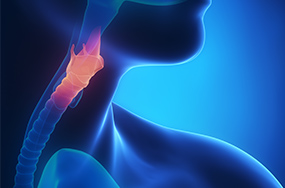Eosinophilic Esophagitis is a Digestive Disorder Commonly Caused by Undiagnosed Food Allergies
 Eosinophilic esophagitis is a gastrointestinal disorder characterized by marked esophageal eosinophilia that is etiologically linked to immune hypersensitivity to dietary androgens, and is a chronic disorder that persists from childhood into adulthood.
Eosinophilic esophagitis is a gastrointestinal disorder characterized by marked esophageal eosinophilia that is etiologically linked to immune hypersensitivity to dietary androgens, and is a chronic disorder that persists from childhood into adulthood.
The high response rate to food elimination diets, especially amino acid based formulas and the frequent recurrence of disease with food reintroduction imply that the disease is mediated by allergic sensitizations to foods.
Eosinophilic gastrointestinal disorders can either involve the esophagus-eosinophilic gastroesophagitis, the stomach-eosinophilic gastritis, intestine-eosinophilic gastroenteritis, and large intestine-eosinophilic colitis. Symptoms include nausea, vomiting, diarrhea, dysphagia, abdominal pain, irritability, gastric dysmotility, reflux disease, bloating, anemia, and blood in the stool.
Esophagogastroduodenoscopy, with biopsies done by a gastroenterologist, is usually necessary to make the diagnosis. Biopsies show an increased amount of eosinophils. Eosinophilic gastrointestinal disorders are usually caused by food allergies, and allergy testing should be done.
Frequently eosinophilic gastrointestinal disorders are caused by milk allergy, grain allergy, egg, and soy allergy. An elimination of suspecting foods will improve 75% of all patients, as well as swallowing steroids such as Budesonide or Alvesco can also be beneficial.






